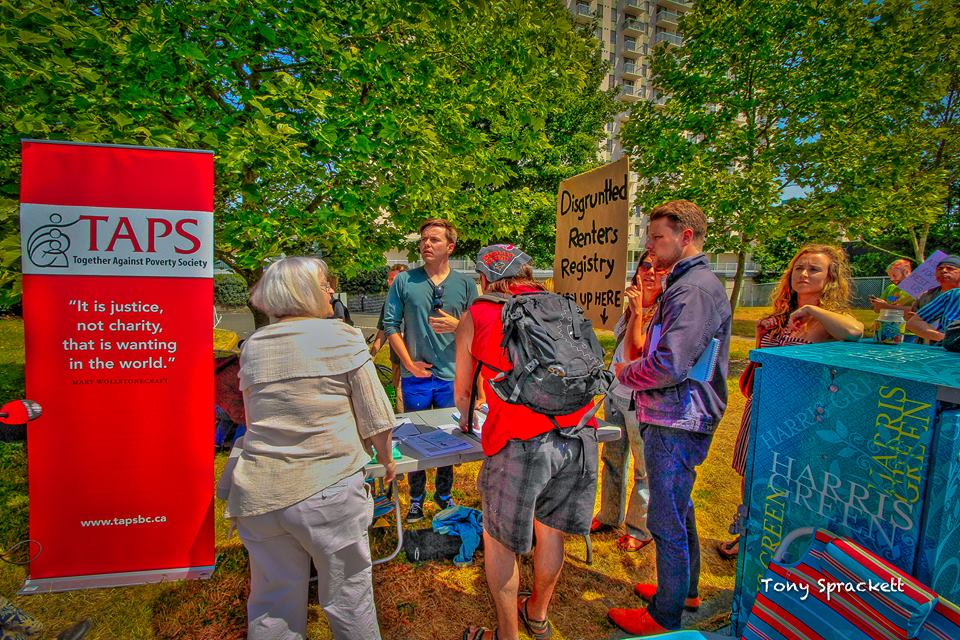Canada News
Delays slow B.C. government’s promised poverty reduction plan, says minister

The director of a Victoria-based anti-poverty group said Thursday the need to fight poverty is immediate and they will be among many watching to ensure the government’s plan includes targets and time lines. (Photo: Together Against Poverty Society/Facebook)
VICTORIA – British Columbia’s promised plan to fight poverty is taking longer to introduce than originally forecast, says the minister in charge of poverty reduction.
Shane Simpson announced plans last year to table legislation this spring that includes targets and timelines to cut poverty, but he said that has now been delayed to the fall.
The director of a Victoria-based anti-poverty group said Thursday the need to fight poverty is immediate and they will be among many watching to ensure the government’s plan includes targets and time lines.
“If the government pushing back to the fall means that the legislation is ultimately much more concrete and actionable, then we would actually say that’s a good thing,” said Doug King, Together Against Poverty Society executive director. “If the government pushes it back and the legislation doesn’t provide us with those resolute bench marks then definitely I would say we’d be pretty disappointed.”
A member of King’s society is one of 27 on the New Democrat government’s poverty strategy advisory panel established last year.
The advisory panel is holding meetings across B.C., and Simpson said the government and the panel need more time to put together the plan.
“We want to make sure we have enough time to complete those discussions and those consultations and ensure we get that piece right,” he said. “I made the decision to put the legislation off to the fall rather than try to rush it and get it in.”
Simpson said he wouldn’t speculate on the details of the plan. He also said the cost of the program remains part of ongoing discussions.
Last fall, Simpson said B.C. has the highest poverty rate in Canada with an estimated 678,000 people living in poverty, including 118,000 children.
He said those numbers were based on the federal government’s Market Basket Measure indicator which includes the costs of food, clothing, footwear, transportation, housing and other expenses for a family with two children.
The NDP made poverty reduction one of its key election promises last spring after years of labelling the former B.C. Liberal government as insensitive for rejecting plans to reduce one of the highest child-poverty rates in Canada.
Simpson said he has attended several public meetings where people express concerns about poverty and suggest where the government should focus its attention.
He said at most meetings about half of the people attending are struggling with poverty. Simpson said he’s noticed those people often wait until the end of the meeting to tell their stories, and many are difficult to hear.
The minister said his attendance at a Victoria meeting last fall with about 180 people, including some who were living on the street, was especially difficult.
“I was at a table with a group of young men and women in their 30s, mostly all facing addiction issues, and one fellow said, ‘I got into drugs because I was hungry and drugs were cheaper than food, and when I’m high I’m not hungry any more.’ “
Another man said he feels invisible when on the street, but when he’s high on drugs he doesn’t care that people don’t see him or care about his well being,” said Simpson.
“This truly was kind of the epitome of self medicating,” he said. “That’s too bad.”





















